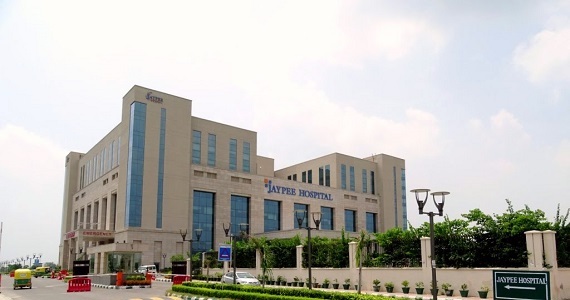Lymphadenectomy (D2) Treatment in India
treatment
starting from
Introduction:
Lymphadenectomy, specifically D2 lymphadenectomy, is a surgical procedure that involves the removal of regional lymph nodes in the treatment of certain cancers. The lymph nodes play a vital role in filtering lymphatic fluid and are potential sites of cancer spread. D2 lymphadenectomy is a specialized technique that aims to remove more extensive lymph node groups to improve the accuracy of cancer staging and potentially enhance treatment outcomes. This article provides a comprehensive overview of D2 lymphadenectomy, including its principles, symptoms, causes, treatment, benefits, cost in India, and its significance in cancer management.
Principles of D2 Lymphadenectomy:
D2 lymphadenectomy is guided by several fundamental principles:
- Extended Lymph Node Dissection: D2 lymphadenectomy involves the removal of more extensive lymph node groups compared to standard lymphadenectomy procedures. This approach aims to achieve more accurate cancer staging and improve treatment outcomes.
- Staging Accuracy: By removing additional lymph node groups, D2 lymphadenectomy helps in accurately staging the cancer, enabling better treatment planning and prognosis assessment.
- Tumor Clearance: D2 lymphadenectomy aims to remove cancer cells that may have spread to nearby lymph nodes, reducing the risk of cancer recurrence and improving long-term survival rates.
- Experienced Surgical Team: Due to the complexity of the procedure and potential risks, D2 lymphadenectomy should be performed by a skilled surgical team experienced in cancer surgeries.
Symptoms and Indications for D2 Lymphadenectomy:
D2 lymphadenectomy is primarily indicated for the treatment of certain cancers, particularly those that have a higher risk of lymph node involvement. These may include:
- Gastric Cancer: D2 lymphadenectomy is commonly performed for the treatment of gastric cancer, especially in cases of advanced disease or tumors with a high risk of lymph node metastasis.
- Esophageal Cancer: In esophageal cancer, D2 lymphadenectomy may be indicated when the cancer has spread to nearby lymph nodes.
- Pancreatic Cancer: In select cases of pancreatic cancer, D2 lymphadenectomy may be considered to remove regional lymph nodes and improve disease control.
- Gastrointestinal Stromal Tumors (GIST): In certain cases of GIST, D2 lymphadenectomy may be performed to evaluate the extent of lymph node involvement and guide treatment decisions.
Causes and Risk Factors:
The causes of cancers requiring D2 lymphadenectomy can vary based on the cancer type:
- Gastric Cancer: The exact cause of gastric cancer is often multifactorial, involving genetic factors, environmental influences, and lifestyle choices.
- Esophageal Cancer: Esophageal cancer may be associated with chronic acid reflux, smoking, alcohol consumption, and other risk factors.
- Pancreatic Cancer: Pancreatic cancer is often linked to genetic mutations, chronic pancreatitis, diabetes, and certain lifestyle factors.
- GIST: GISTs are rare tumors that arise from the gastrointestinal tract and are often linked to genetic mutations.
Treatment: D2 Lymphadenectomy:
D2 lymphadenectomy is a complex surgical procedure that requires meticulous planning and surgical expertise. The treatment typically involves the following steps:
- Preoperative Evaluation: Before surgery, the patient undergoes a thorough evaluation, including imaging studies (CT scan, MRI, PET-CT) to determine the extent of lymph node involvement and cancer spread.
- Surgical Planning: Based on the preoperative evaluation, the surgical team devises a detailed plan for D2 lymphadenectomy, outlining the lymph node groups to be removed.
- Intraoperative Procedure: During surgery, the surgeon meticulously removes the specified lymph node groups, ensuring complete clearance of cancerous nodes and accurate staging.
- Postoperative Care: Following surgery, patients receive postoperative care, which may include pain management, monitoring for complications, and rehabilitation as needed.
Benefits of D2 Lymphadenectomy:
D2 lymphadenectomy offers several benefits in the management of select cancers:
- Improved Staging Accuracy: D2 lymphadenectomy provides a more accurate assessment of lymph node involvement, leading to better cancer staging and prognostic information.
- Reduced Risk of Recurrence: By removing potentially cancerous lymph nodes, D2 lymphadenectomy reduces the risk of cancer recurrence and improves long-term survival rates.
- Tailored Treatment: Accurate staging through D2 lymphadenectomy allows for personalized treatment planning, including adjuvant therapies or targeted therapies based on cancer stage.
- Enhanced Disease Control: D2 lymphadenectomy aims to achieve complete tumor clearance, enhancing disease control and potentially improving treatment outcomes.
- Precise Prognosis Assessment: Accurate staging from D2 lymphadenectomy enables more precise prognosis assessment, aiding in counseling patients about their disease prognosis.
Cost of D2 Lymphadenectomy in India:
The cost of D2 lymphadenectomy in India can vary depending on several factors, including the cancer type, the complexity of the procedure, the expertise of the surgical team, the hospital or medical facility, and the patient's overall health. On average, the cost of D2 lymphadenectomy in India ranges from ?3,00,000 to ?8,00,000 or more.
Conclusion:
D2 lymphadenectomy is a specialized surgical approach used in the treatment of certain cancers to achieve accurate staging and improve treatment outcomes. By removing more extensive lymph node groups, D2 lymphadenectomy enhances the accuracy of cancer staging, reduces the risk of cancer recurrence, and allows for tailored treatment planning.
Patients with cancers that have a higher risk of lymph node involvement, such as gastric cancer, esophageal cancer, pancreatic cancer, and gastrointestinal stromal tumors (GIST), may be candidates for D2 lymphadenectomy. However, the decision to undergo this procedure should be carefully evaluated by a multidisciplinary team of specialists, considering the patient's overall health, the stage of cancer, and other relevant factors.
How It Works
Need help in organizing medical travel to India?




